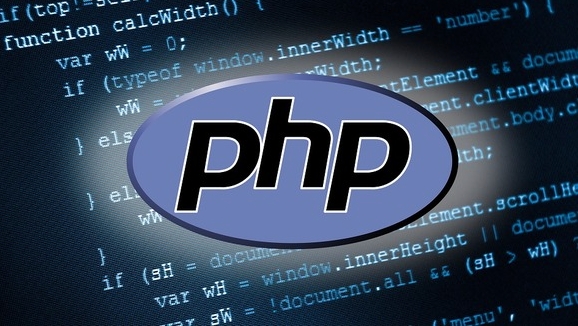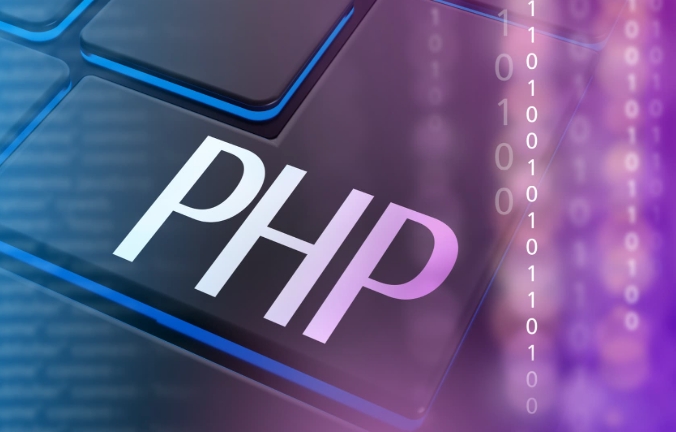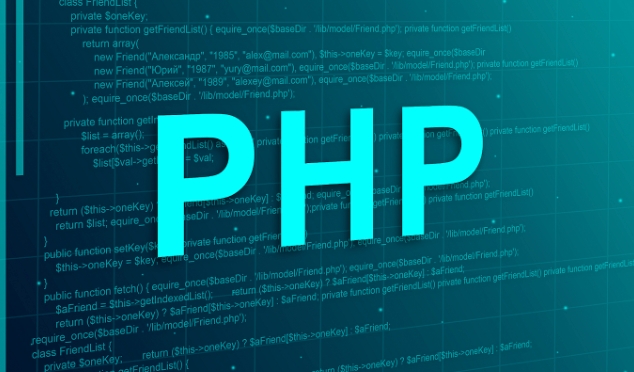 Backend Development
Backend Development
 PHP Tutorial
PHP Tutorial
 PHP Development environment optimization: Tips to improve performance
PHP Development environment optimization: Tips to improve performance
PHP Development environment optimization: Tips to improve performance
Jun 29, 2025 am 02:04 AMTo speed up a PHP development environment, optimize tools and configurations. 1) Use lightweight local servers like Laragon or Docker-based setups to reduce overhead. 2) Disable unused Apache/Nginx modules and use actively maintained PHP versions. 3) Adjust PHP settings such as disabling realpath_cache, enabling OPcache, and increasing memory limits. 4) Manage debugging tools like Xdebug efficiently by loading them only when needed. 5) Optimize Composer autoload to minimize file parsing on each request. These steps streamline performance with minimal effort.

If you're working with PHP and want your development environment to run faster, the key is in tuning both the tools and how they interact. A sluggish setup can kill productivity—slow page loads, delayed debugging, or bloated resource usage all add up. The good news is that with a few targeted changes, you can make your local PHP workflow feel much snappier.

Use a Lightweight Local Server Stack
Many developers start with full-blown setups like XAMPP or WAMP, but those often come with extra services running in the background that you might not need. If you’re only developing one or two projects, using something lighter like Laragon (Windows), MAMP (Mac), or even Docker-based environments tailored to your project can cut down on overhead.

- Disable unused modules in Apache or Nginx
- Stick to PHP versions that are actively maintained
- Use built-in PHP server for small tests (
php -S localhost:8000)
This helps reduce memory consumption and speeds up boot time, especially if you're switching between multiple projects often.
Optimize PHP Configuration for Development
The default php.ini isn’t always ideal for local development. Tweaking it can significantly improve performance without affecting functionality.

Some useful tweaks:
- Turn off
realpath_cache:realpath_cache_size=0(helps when files change often) - Enable an opcode cache like OPcache:
opcache.enable=1andopcache.enable_cli=1 - Set higher memory limits temporarily:
memory_limit=512M
These settings help reduce file parsing overhead and keep scripts running smoothly during active development.
Keep Debugging Tools Smart, Not Heavy
Tools like Xdebug are invaluable for stepping through code, but they also slow things down—sometimes dramatically. Many devs forget to toggle them off when they're not actively debugging.
Here’s what to do:
- Load Xdebug as a Zend extension only when needed
- Use conditional loading via environment variables or CLI flags
- Consider alternatives like PsySH for quick debugging without full profiling
A common trick is to have two PHP binaries: one with Xdebug enabled and another without. That way, you can switch easily depending on whether you're debugging or just testing general functionality.
Watch Out for Composer and Autoload Optimization
Composer's autoload system is convenient, but it can become a bottleneck if not managed well. Every time you request a PHP script, it has to load and parse a bunch of files.
To speed this up:
- Run
composer dump-autoload --optimizeregularly - Avoid excessive classmap generation unless necessary
- Don’t autoload dev dependencies in production-like environments
You’ll notice a difference especially in larger projects where hundreds of classes are autoloaded on each request.
Performance tuning for PHP development doesn’t require big overhauls. It’s more about making thoughtful choices in your setup and configuration. Most of these adjustments are simple and take just a few minutes to apply, but they can save you a lot of waiting time over the course of a day.
The above is the detailed content of PHP Development environment optimization: Tips to improve performance. For more information, please follow other related articles on the PHP Chinese website!

Hot AI Tools

Undress AI Tool
Undress images for free

Undresser.AI Undress
AI-powered app for creating realistic nude photos

AI Clothes Remover
Online AI tool for removing clothes from photos.

Clothoff.io
AI clothes remover

Video Face Swap
Swap faces in any video effortlessly with our completely free AI face swap tool!

Hot Article

Hot Tools

Notepad++7.3.1
Easy-to-use and free code editor

SublimeText3 Chinese version
Chinese version, very easy to use

Zend Studio 13.0.1
Powerful PHP integrated development environment

Dreamweaver CS6
Visual web development tools

SublimeText3 Mac version
God-level code editing software (SublimeText3)
 PHP Variable Scope Explained
Jul 17, 2025 am 04:16 AM
PHP Variable Scope Explained
Jul 17, 2025 am 04:16 AM
Common problems and solutions for PHP variable scope include: 1. The global variable cannot be accessed within the function, and it needs to be passed in using the global keyword or parameter; 2. The static variable is declared with static, and it is only initialized once and the value is maintained between multiple calls; 3. Hyperglobal variables such as $_GET and $_POST can be used directly in any scope, but you need to pay attention to safe filtering; 4. Anonymous functions need to introduce parent scope variables through the use keyword, and when modifying external variables, you need to pass a reference. Mastering these rules can help avoid errors and improve code stability.
 How to handle File Uploads securely in PHP?
Jul 08, 2025 am 02:37 AM
How to handle File Uploads securely in PHP?
Jul 08, 2025 am 02:37 AM
To safely handle PHP file uploads, you need to verify the source and type, control the file name and path, set server restrictions, and process media files twice. 1. Verify the upload source to prevent CSRF through token and detect the real MIME type through finfo_file using whitelist control; 2. Rename the file to a random string and determine the extension to store it in a non-Web directory according to the detection type; 3. PHP configuration limits the upload size and temporary directory Nginx/Apache prohibits access to the upload directory; 4. The GD library resaves the pictures to clear potential malicious data.
 Commenting Out Code in PHP
Jul 18, 2025 am 04:57 AM
Commenting Out Code in PHP
Jul 18, 2025 am 04:57 AM
There are three common methods for PHP comment code: 1. Use // or # to block one line of code, and it is recommended to use //; 2. Use /.../ to wrap code blocks with multiple lines, which cannot be nested but can be crossed; 3. Combination skills comments such as using /if(){}/ to control logic blocks, or to improve efficiency with editor shortcut keys, you should pay attention to closing symbols and avoid nesting when using them.
 How Do Generators Work in PHP?
Jul 11, 2025 am 03:12 AM
How Do Generators Work in PHP?
Jul 11, 2025 am 03:12 AM
AgeneratorinPHPisamemory-efficientwaytoiterateoverlargedatasetsbyyieldingvaluesoneatatimeinsteadofreturningthemallatonce.1.Generatorsusetheyieldkeywordtoproducevaluesondemand,reducingmemoryusage.2.Theyareusefulforhandlingbigloops,readinglargefiles,or
 Tips for Writing PHP Comments
Jul 18, 2025 am 04:51 AM
Tips for Writing PHP Comments
Jul 18, 2025 am 04:51 AM
The key to writing PHP comments is to clarify the purpose and specifications. Comments should explain "why" rather than "what was done", avoiding redundancy or too simplicity. 1. Use a unified format, such as docblock (/*/) for class and method descriptions to improve readability and tool compatibility; 2. Emphasize the reasons behind the logic, such as why JS jumps need to be output manually; 3. Add an overview description before complex code, describe the process in steps, and help understand the overall idea; 4. Use TODO and FIXME rationally to mark to-do items and problems to facilitate subsequent tracking and collaboration. Good annotations can reduce communication costs and improve code maintenance efficiency.
 Learning PHP: A Beginner's Guide
Jul 18, 2025 am 04:54 AM
Learning PHP: A Beginner's Guide
Jul 18, 2025 am 04:54 AM
TolearnPHPeffectively,startbysettingupalocalserverenvironmentusingtoolslikeXAMPPandacodeeditorlikeVSCode.1)InstallXAMPPforApache,MySQL,andPHP.2)Useacodeeditorforsyntaxsupport.3)TestyoursetupwithasimplePHPfile.Next,learnPHPbasicsincludingvariables,ech
 How to access a character in a string by index in PHP
Jul 12, 2025 am 03:15 AM
How to access a character in a string by index in PHP
Jul 12, 2025 am 03:15 AM
In PHP, you can use square brackets or curly braces to obtain string specific index characters, but square brackets are recommended; the index starts from 0, and the access outside the range returns a null value and cannot be assigned a value; mb_substr is required to handle multi-byte characters. For example: $str="hello";echo$str[0]; output h; and Chinese characters such as mb_substr($str,1,1) need to obtain the correct result; in actual applications, the length of the string should be checked before looping, dynamic strings need to be verified for validity, and multilingual projects recommend using multi-byte security functions uniformly.
 Quick PHP Installation Tutorial
Jul 18, 2025 am 04:52 AM
Quick PHP Installation Tutorial
Jul 18, 2025 am 04:52 AM
ToinstallPHPquickly,useXAMPPonWindowsorHomebrewonmacOS.1.OnWindows,downloadandinstallXAMPP,selectcomponents,startApache,andplacefilesinhtdocs.2.Alternatively,manuallyinstallPHPfromphp.netandsetupaserverlikeApache.3.OnmacOS,installHomebrew,thenrun'bre





